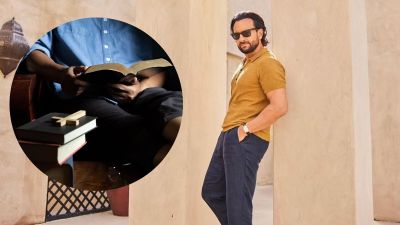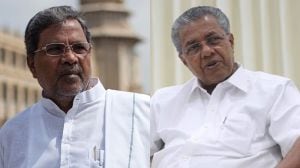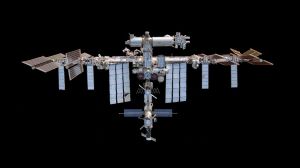For God, and George
He8217;s probably white, does an everyday blue-collar job and is pejoratively termed the redneck by lifelong critics. This week, the Quiet ...

 He8217;s probably white, does an everyday blue-collar job and is pejoratively termed the redneck by lifelong critics. This week, the Quiet American 8212; Pious American, if you prefer 8212; spoke his mind. The world had to listen, even if the world8217;s media didn8217;t like the message.
He8217;s probably white, does an everyday blue-collar job and is pejoratively termed the redneck by lifelong critics. This week, the Quiet American 8212; Pious American, if you prefer 8212; spoke his mind. The world had to listen, even if the world8217;s media didn8217;t like the message.
Farming in the endless, sun-baked stretch that is the Prairie; surviving on the edge of poor street in the dying steel towns of the Midwest; living an uncomplicated existence in Smallsville; singing the gospel in the deep South 8212; the heartland American is just so easy to miss. For millions overseas, the only image of the United States is one of ever-in-a-hurry New Yorkers, or the folk from Berkeley and San Francisco, for whom life is a series of angst-ridden protest marches.
That is America as non-America sees it; it is not America as America cherishes it. George W. Bush8217;s re-election on November 2 was not just a mandate, it was Middle America stamping its sense of national identity.
In the end, America appeared a divided country. True, Bush won 51 per cent of the vote to John F. Kerry8217;s 48 per cent. Almost the same, you8217;d say, give or take a few million. Yes, but 51 per cent in a democracy isn8217;t a narrow escape. An enlightened interpretation would see it as a landslide.
After all Bush has won more votes, in absolute numbers, than any American president ever. His party controls both houses of Congress, his agenda has triumphed. If America is divided, it8217;s between heartland and coast, core and fringe.
A quarter century ago, the Southern Baptists were Jimmy Carter8217;s champions. Today, they8217;re part of Bush8217;s burgeoning Christian Coalition. They don8217;t speak the same language as Kerry8217;s Boston Brahmins. The Democratic elite has lost the Republic8217;s people.
THIS new American wasn8217;t born in a day. He was always there, having his say, making his point, pushing his country gradually to the right. The Reagan revolution moved the economic goalposts. After 1980, nobody talked of big government and mega-welfare schemes. Even Bill Clinton, Democratic president in the 1990s, was a fiscally-conservative Reagan legatee.
The Bush proto-revolution is the cultural analogue of Reaganomics. Read it in the exit poll numbers. Fifty-three per cent of those above 60 voted Republican on November 2, as opposed to 44 per cent of those between 18-29. The generation that won the Cold War, made its money and set up its businesses in the Reagan years, now wants to define its society.
For 22 per cent of the voters, 8216;8216;moral values8217;8217; were the number one issue of this election; 79 per cent of this segment went with Bush. Another 20 per cent saw the economy and jobs as the critical issue; 80 per cent of this segment preferred Kerry.
Nevertheless Kerry8217;s strongest campaign pitch was cancelled out by the third most important factor in this election 8212; terrorism. For 19 per cent of Americans, it was the decisive issue; and 86 per cent of this group felt safer under Bush.
THE blue collar worker in that rust belt town may be very worried about his job, about cheap steel from China and South Korea, about outsourcing to India. Yet he is also the most gung-ho patriot in the American family, almost unrealistically passionate about God and Country. In a 8216;8216;normal8217;8217; election, he may have swung to Kerry8217;s 8216;8216;the economy8217;s in a mess8217;8217; corner, bought his apprehensions about world trade; in the time of the War on Terror, America came first.
Irrespective of where he stands, the American voter is informed by a remarkable certitude. A full 78 per cent of the electorate had decided which way it was voting more than a month before the election. The faux argument over who won the three presidential debates was quite purposeless. When America is set on a course it believes is right, it cannot be stopped.
That8217;s the crucible George W. comes from.
- 01
- 02
- 03
- 04
- 05































